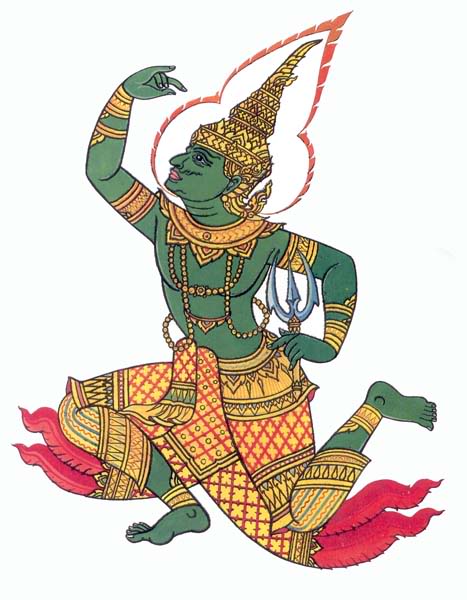AJAB, BHAI, a Jatt of Sangha clan who lived in the village of Darauli, now called Darauli Bhai, in Faridkot; district of the Punjab. He, like his brothers Umar Shah and Ajaib, forsook his faith in Sultan Sakhi Sarwar, became a Sikh and rendered devoted service at the time of the construction of the Harimandar at Amritsar. The three brothers were appointed masands, or parish leaders, in the areas of Moga, Zira and Dharamkot. They often used to quote Guru Arjan`s line: " If God so wills, He may keep one alive even after breath had departed the body." They were especially gratified once to have the line expounded by the Guru himself.
ALAM SINGH NACHNA (d. 1705), a warrior in the retinue of Guru Gobind Singh, was the son of Bhai Durgu, a Rajput Sikh of Sialkot. He earned the popular epithet Nachna (lit. dancer) because of his uncommon agility. Sarup Das Bhalla, Mahima Prakash, describes him as one of Guru Gobind Singh\'s constant companions. Possessing pluck as well as skill, he once killed a tiger single handed. On another occasion when during the chase Guru Gobind Singh was suddenly attacked by two hill chiefs, Balia Chand and Alam Chand, with a force far out numbering his own, Alam Singh Nachna showed exemplary courage.
ALO HARAKH, village in Sangrur district, has a historical shrine called Gurdwara Sahib Alo Harakh Patshahi Naumi. A low domed Manji Sahib, under an old banyan tree marks the site where Guru Tegh Bahadur once sat arriving from the neighbouring village of Gunike. The congregation hall has a vaulting ceiling with a domed sanctum inside. Both the hall and the Manji Sahib were constructed in 1909. The Gurdwara is administered by the Shiromani Gurdwara Parbandhak Committee through a local committee.
ANANTA, BHAI, son of Bhai Kuko, a Vadhavan Khatri, was a devoted Sikh of the time of Guru Hargobind (1595-1644). According to Bhai Santokh Singh, Sri Gur Pratap Suraj Granth, he once earned the Guru`s displeasure for wantonly hitting a crow which became lame as a result of the injury. He was, however, repentant and was pardoned through Bhai Bidhi Chand`s intercession. Bhai Ananta laid down his life fighting for the Guru in the battle of Amritsar (1629).











